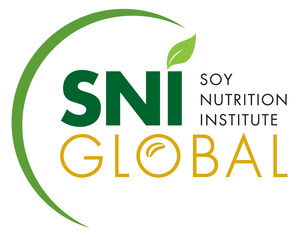Vegetable oils derived from seeds, such as corn, soy and canola,
may lower risk of chronic diseases due to their monounsaturated fatty acids
and omega-6 and omega-3 polyunsaturated fatty acids.
ST. LOUIS, Nov. 19, 2024 /PRNewswire/ -- Consumption of seed oils high in unsaturated fatty acids (the building blocks of fat), including the essential fatty acid linoleic acid, is associated with numerous health benefits, according to a new, peer-reviewed manuscript published in the British Journal of Nutrition. A team of authors provided their expert perspective on the health effects of the omega-6 polyunsaturated fatty acid (PUFA) based on human research, both intervention and prospective observational studies that carry the most weight within the scientific community.
"When drawing conclusions about diet and health relationships, it is imperative to do so based on the totality of the evidence and to consider study quality," says Kristina S. Petersen, Ph.D., lead author of the review and associate professor, Department of Nutritional Sciences, Pennsylvania State University. "The data clearly support the benefits of seed oils high in unsaturated fatty acids, such as linoleic acid."
Linoleic acid is classified as an essential fatty acid because the body cannot produce it on its own but it is required for our bodies to function. Population studies show that higher intake and biomarkers of intake of this omega-6 fatty acid are associated with lower risk of cardiovascular disease (CVD), coronary heart disease, type 2 diabetes, and overall mortality.
The new publication, "Perspective on the health effects of unsaturated fatty acids and commonly consumed plant oils high in unsaturated fat," is intended as a resource for public health professionals amidst rising confusion and contradictory claims about seed oils. It was authored by a group of internationally recognized experts, who conclude:
- Significant clinical evidence supports the beneficial effect of replacing saturated fatty acids with unsaturated fatty acids, particularly PUFAs, on key CVD risk factors, such as elevated blood cholesterol levels. Further, population studies show that replacement of saturated fatty acid sources with PUFA-containing oils substantially lowers CVD risk.
- Intake of the omega-6 linoleic acid does not increase inflammation or oxidative stress. In fact, population studies often show that higher intake is associated with reduced, rather than increased, inflammation.
- U.S. intake of linoleic acid accounts for approximately 7-8% of total caloric intake, which is in line with intake recommendations from the American Heart Association.
- Increased consumption of linoleic acid is associated with reduced risk of developing type 2 diabetes, according to large population studies in which participants were followed for decades.
- The dietary omega-6 (like linoleic acid) to omega-3 (like alpha-linolenic acid) fatty acid ratio is not a useful measure of diet quality. Since both types of fatty acids are beneficial, the goal should be to consume enough of each type. Alpha- linolenic acid is found in certain types of seeds and nuts as well as canola and soybean oils.
"Vegetable oils, including seed oils, are some of the most widely consumed oils in North America because they are healthy, versatile and affordable," says Melissa Joy Dobbins, MS, RDN, CDCES. "In fact, common seed oils – soybean, corn and canola – have qualified health claims authorized by the U.S. Food and Drug Administration for their role in lowering blood cholesterol and potentially reducing the risk of coronary heart disease. I highly recommend that my clients consume such seed oils, which are high in unsaturated fatty acids, as part of a healthy diet."
Soy Nutrition Institute Global coordinated the review paper. Financial support was provided by the United Soybean Board, National Corn Growers Association, Corn Refiners Association, Canola Council of Canada and U.S. Canola Association.
To learn more about common seed oils, visit SNIGlobal.org/seedoils.
About Soy Nutrition Institute Global
Soy Nutrition Institute Global is a global scientific voice of soy for human health and nutrition. SNI Global leads the way in soy and health research, outreach and communications, and government and regulatory affairs. The organization includes members up and down the soy value chain – from farmers to food companies – as well as a scientific advisory board that provides expert guidance in various areas of nutrition science. For more information about the Soy Nutrition Institute Global, visit www.SNIGlobal.org.
Media Contact:
Sarah Alsager
[email protected]
SOURCE Soy Nutrition Institute Global

WANT YOUR COMPANY'S NEWS FEATURED ON PRNEWSWIRE.COM?
Newsrooms &
Influencers
Digital Media
Outlets
Journalists
Opted In






Share this article